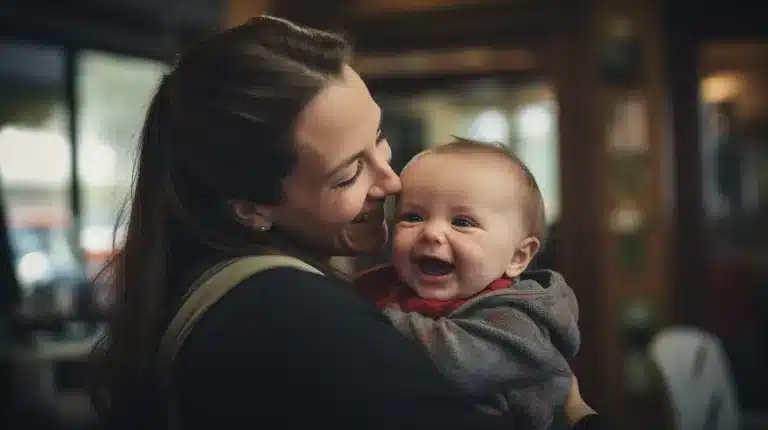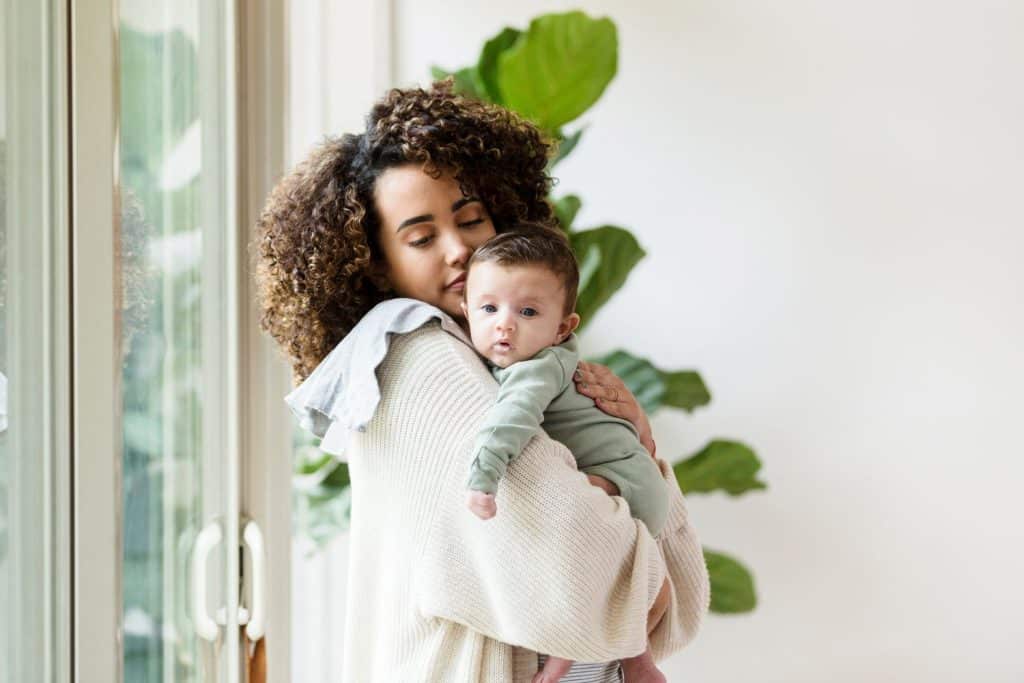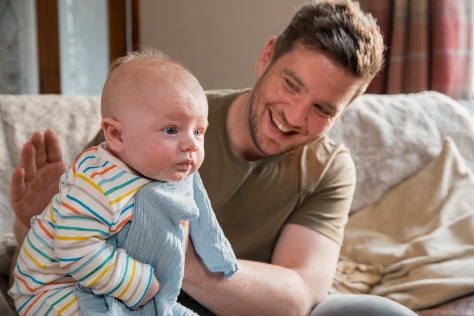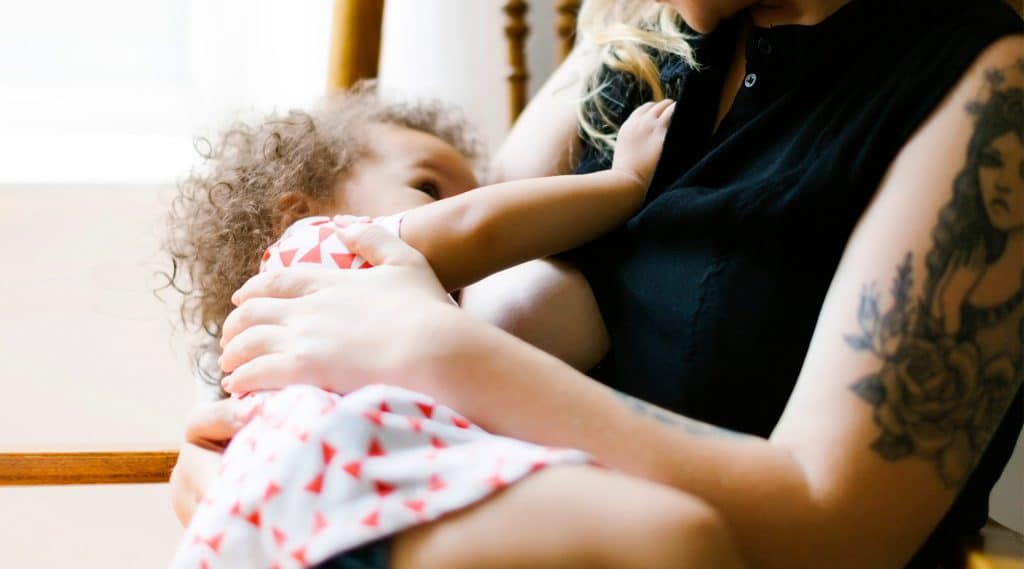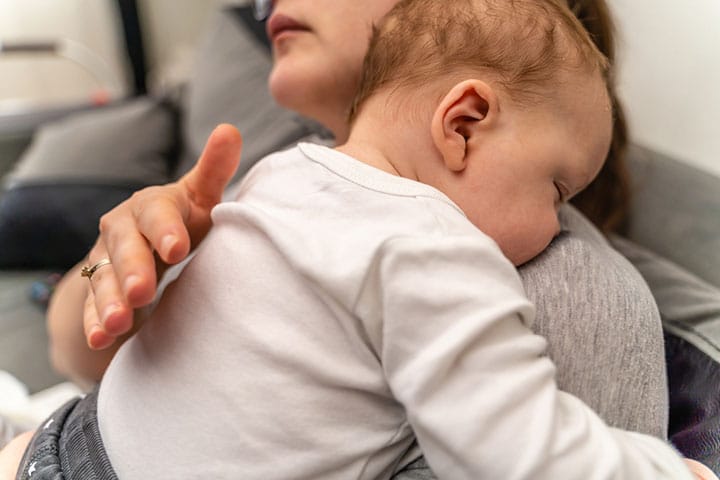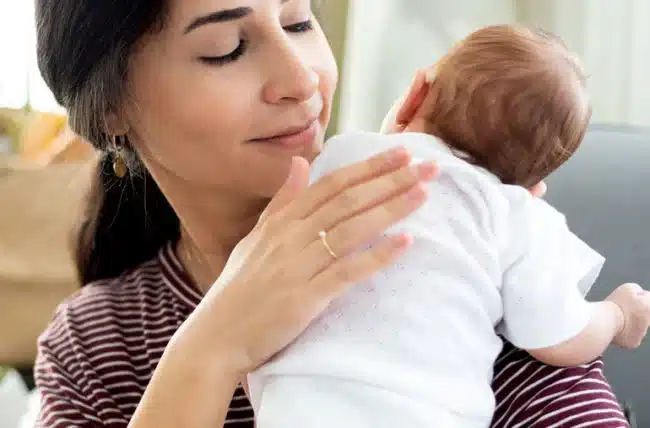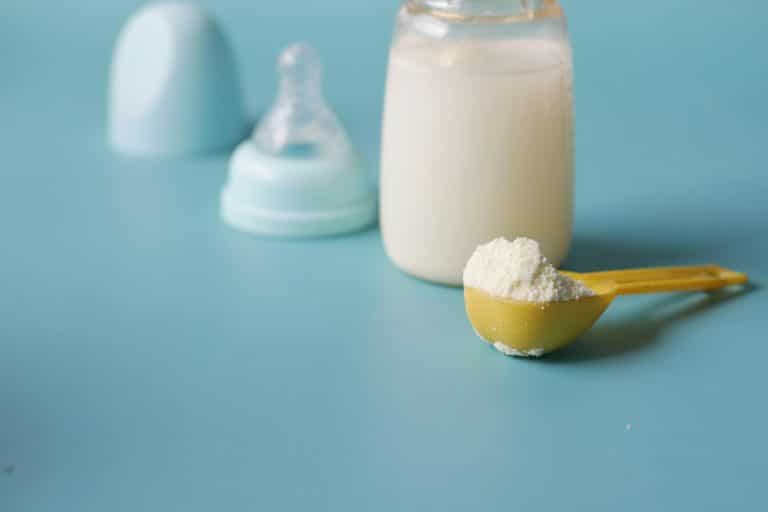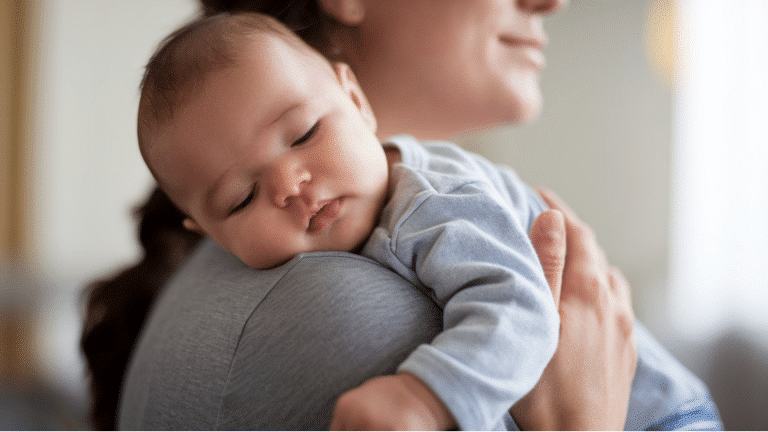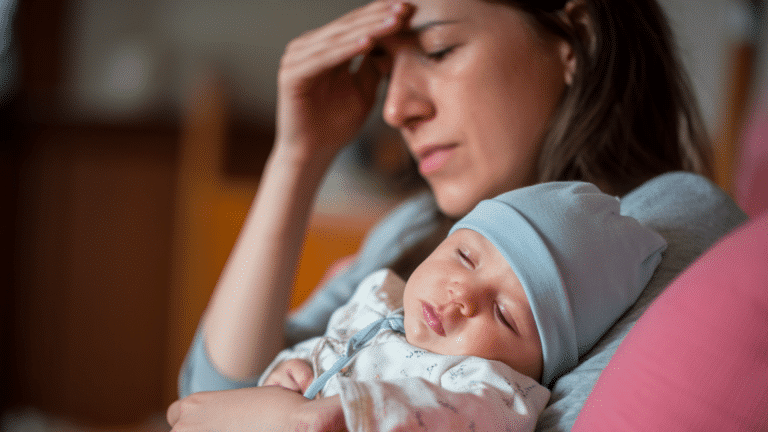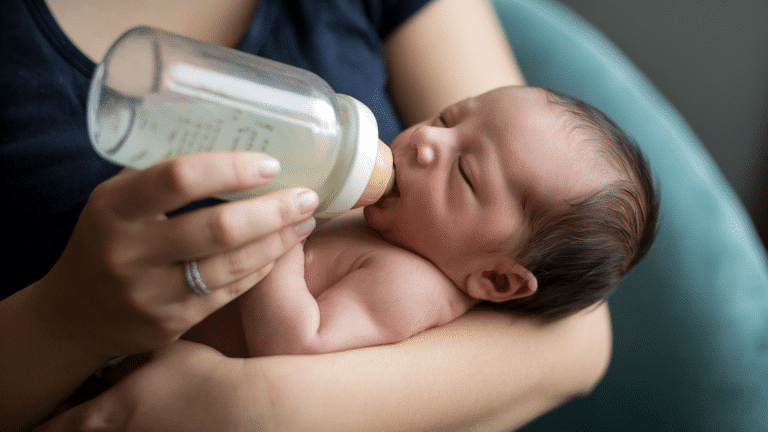Are you worried about your little munchkin? Don’t have any clue about when you stop burping a baby? Well, it’s midnight, and you’ve been patting your little one on the back, and it seems like forever to make your baby burp. You are exhausted and feel like going back to bed and sleeping, but all you can do is be patient.
Burping a baby is not an easy task; it is like a game without any specified rules. When to do it? How to do it? When to stop doing it? All such questions leave you in a dilemma, isn’t it? Especially late nights like these end up giving you a hectic morning as well!
We understand how hard it can be to stop your baby burp from burping. So, we are here to help you out through this situation.
Why Do Babies Need to Burp?
The answer to this question is: When babies eat or are fed, gas builds up in their stomachs that need to come out in the form of a burp to avoid discomfort and gas pain.
The gas generally comes from several sources, but the notable ones are:
- Air Swallowed during feeding
- Natural gases created by digestion
This air or gas built up inside the tummy of a baby can cause them discomfort, gas pains, or even a feeling of being full from inside. The only way in which babies can communicate is through crying in their early stages, so the pain generated from gas or discomfort can make them cry for hours if not being understood the reason behind it properly. For this very reason, people are advised to make their baby burp during or after feeding.
In her expert opinion, Dr. Cindy Gellner has shared some tremedous insights for parents, she says, “New parents may worry that their newborn will have stomach problems if she doesn’t burp after feeding. But pediatrician Dr. Cindy Gellner says not to worry: the air in your baby will find a way out. She explains symptoms associated with colic and spitting up symptoms and why new parents shouldn’t worry.”
In the case of breastfeeding moms, they are typically advised to make their baby burp as soon as they switch the breast, and for formula-fed babies, they are suggested to be burped after every couple of ounces they drink. Although nothing terrible will happen if you forget to make them burp but even a little discomfort to your baby can make them cry out of pain and cause the same amount of discomfort to you as well.
Now the question arises that if your baby is not upset, then too, is there any need to make them burp? Well, the new study has stated that if there is no such case of a high level of discomfort or some gas pain in your baby even without making them burp, then there is no such need to force them to burp after every single time you feed them. After all, every baby is different, and so their ways may also differ from each other.
It is possible and completely normal that your baby’s body might have a different way of tackling the gas bubbles formed in their tummy, and then don’t get such an issue of gas pain or discomfort if not being burped after being fed. Whereas some babies might get cranky and face discomfort if not being burped after a feeding session. They may have so digestive issues that cause gas pain and ed to be burped properly. It is also suggested not to wake your baby up just to make them burp, except for some exceptional cases where you see some noticeable signs of discomfort in your baby because of not making them burp.
Difference Between Burping Breastfed Babies and Formula-Fed Babies
- One of the biggest reasons why babies need to burp is swallowing air while being breastfed and then having discomfort due to the gas bubbles formed in their tummy. The example through which you can understand this situation clearly as an adult is when you drink a protein shake or fruit smoothie, or any other such drink with air bubbles wiped in it, or even beer or soda, it is impossible for you not to burp after drinking them. Undeniably there is a huge difference in how breastfed and formula-fed babies feed. And so it plays an important role in gas build-up.
- Babies who are breastfed need to burp lesser as compared to formula-fed babies. The reason is that babies who feed through the breast form a good latch/seal that lessens the chances of getting in the air while feeding and so lesser chances of gas build-ups. The feeding process is natural, so it avoids fast feeding and keeps it comfortable for the baby naturally, unlike the formula-fed process.
These are some of the reasons why breastfed babies do not need to be burped as often as formula-fed babies. Again, if the case is quite dissimilar to your baby, then there is no need to worry a lot because every baby’s way is different and can’t be exactly the same as one another. There is nothing wrong if your baby needs to get burped even after breastfeeding because gas buildup totally depends on the digestive responses of your baby’s tummy. And also, the formula-fed process is not even wrong, even if your baby needs a little more help with burping after it, because every baby is different, and so is their body’s response towards the gas buildup.
What Changes Occur When Your Baby Grows Older?
The basic mechanism of the body and the digestive system does not really change, but yes, the ways get enhanced as they grow older. As your baby grows older, he or she gets conscious of when to burp and when there is no such situation as burping from within their tummy. You can stop helping your baby to burp once you notice that it is no longer necessary.
For instance:
- Your baby starts to move around on him/her own without any help.
- He or she has got his or her digestive system mature.
Now the question arises, how is independent mobility related to helping your baby to burp?
1. Self-Control Over Mobility
Having control over their own mobility, moving around themselves, is going to affect a lot on the fact that they do not need to get burped any longer.
Look at yourself! Do you need to get burped by someone else? No right! Somewhat similar goes with your babies as well. As soon as they start to move around by themselves, they do not need any help in burping; instead, they start to burp themselves when needed. But it doesn’t happen exactly similarly to them as it happens to you; it happens on a comparatively smaller scale with them.
Normally, by 4-6 months, your baby will learn to sit on his or her own, and that is going to be one of the big achievements of your little munchkin. This is going to give him or her more control over his or her ability to burp by himself or herself. But don’t expect it to happen too quickly or instantly. Like everything takes time, this also needs some amount of patience.
Not to forget, every child is different, and so you can’t compare their dealing ways with any other baby.
2. Difference in Sensitivity
As your baby grows older it starts his or her stomach gets a little tougher and inhabits the ability to handle more, unlike in the earliest stage of your baby, where every other thing has the chance to react because of the sensitivity of his or her tummy.
For instance, after 6 months, your baby will get ready for solid foods and have the proper handling mechanism. This is going to be the time when your baby’s stomach is going to be ready for purees, apple sauce, yogurt, and so he will be less prone to the gas bubbles formed in his tummy and so lesser chances of discomfort and gas pain.
When Do You Stop Burping a Baby?
The best answer to this question s it depends from baby to baby.
But normally, your baby should be absolutely ready to stop burping from 4-9 months range. Stopping giving your baby help to make him or her burp may depend on a few factors:
- You can stop burping your baby sooner if he or she is being breastfed.
- While it might take longer to stop burping in the case of bottle feeding.
- If your little one is a happy eater with no such or little discomfort after eating, then you can stop burping sooner.
- If your baby gets easily fussy after eating and faces discomfort then it might take longer to stop burping.
- If your munchkin has excellent motor control, you can stop burping him or her sooner.
- If your baby is less mobile as of now, then it might take you longer to stop burping.
A good way to identify when to stop helping your baby to make him burp is to conduct a little test. Don’t make him or burp after feeding, and observe how he or she deals with it, what things are happening, and what kind of response his or her digestive system is giving. Once you see him or her in discomfort, then help them burp; otherwise, you have got your answer of when do you stop burping a baby!
When Do You Stop Burping a Baby at Night?
Well, that’s one of the most important questions there. Who wants to let their baby take a nap by taking a tummy full of gas bubbles and waking up in a very short period of time? None of us! So, it makes this question a really important one.
Acoording to the report by Healthline, ” When it comes to burping, every baby is different. While some babies will require treatment for acid reflux and plenty of upright time after feeds, others will release their gas before you even have a chance to burp them.”
Just as it is common for parents to make their baby burp during and after feeding the same way, it has been quite important to make your baby burp before they take their good night’s sleep. After all, the pain caused by the gas bubbles in the tummy is enough to spoil your baby’s nap routine at night. At the same time, sleeping time is one of the most delicate times for a little munchkin and one of the most crucial ones as well. Disturbing your baby’s sleep at night just for a burp may cause more discomfort to your baby.
As mentioned above, to know the responses of your baby, you must test them once and act accordingly from the following times. If your baby has turned 4 months old and has started to have independent mobility, like sitting or moving on their own, then you can take a test. You can see their response by not making them burp before their good night’s sleep. If in case you get a cranky baby with discomfort, then you have got your answer right there!
Is Burping Enough to Solving Your Baby’s Severe Gas Pains?
There might be times when burping won’t seem enough to help your baby with the discomfort from gas pains. In such cases, it becomes crucial for you to be well aware of the other ways that might solve his or her problem.
1. Bicycling Their Legs
All you have to do this lay your child on their back and move their legs like they are pedaling a bicycle. It can help make the way out for gas. Pooping can also help in such cases if your baby has been trying to take its way out.
2. Massage Your Baby
Baby massages can really help your baby to get rid of discomfort from gas pains. Massages enhance the circulatory and digestive systems of your baby’s body. Massage can be very calming and soothing for your baby hence relieving him from discomfort.
3. Consult Your Doctor About OTC Treatments
If the problem seems more intense and can’t seem to be solved by these remedies, then you must visit your doctor. It is very important to check with your doctor for a defined solution that is the best suited for your child’s body type. Because we all know that every child’s responses to their body’s problems are different from each other. Hence, they need to be monitored individually and properly for better and more effective solutions.
Summing It Up
All in all, there can’t be a common or single answer to this question that can be applied universally to all babies. The reason is very obvious, every baby is unique and so requires unique solutions according to their body’s responses.
On the other hand, a baby can be a happy eater with no such digestive issues or gas pain discomfort, while on the other hand, a baby can be very cranky after feeding and might face gas pain discomfort.
It entirely depends on the baby’s digestive responses, and as they grow older, they tend to become better at every aspect. But in some cases, if your baby isn’t showing much growth over the course of time, then you must visit your doctor, and you will surely find an adequate solution.
Hopefully, this blog has helped you to understand and get to know more things about babies’ bodies and to act accordingly.

